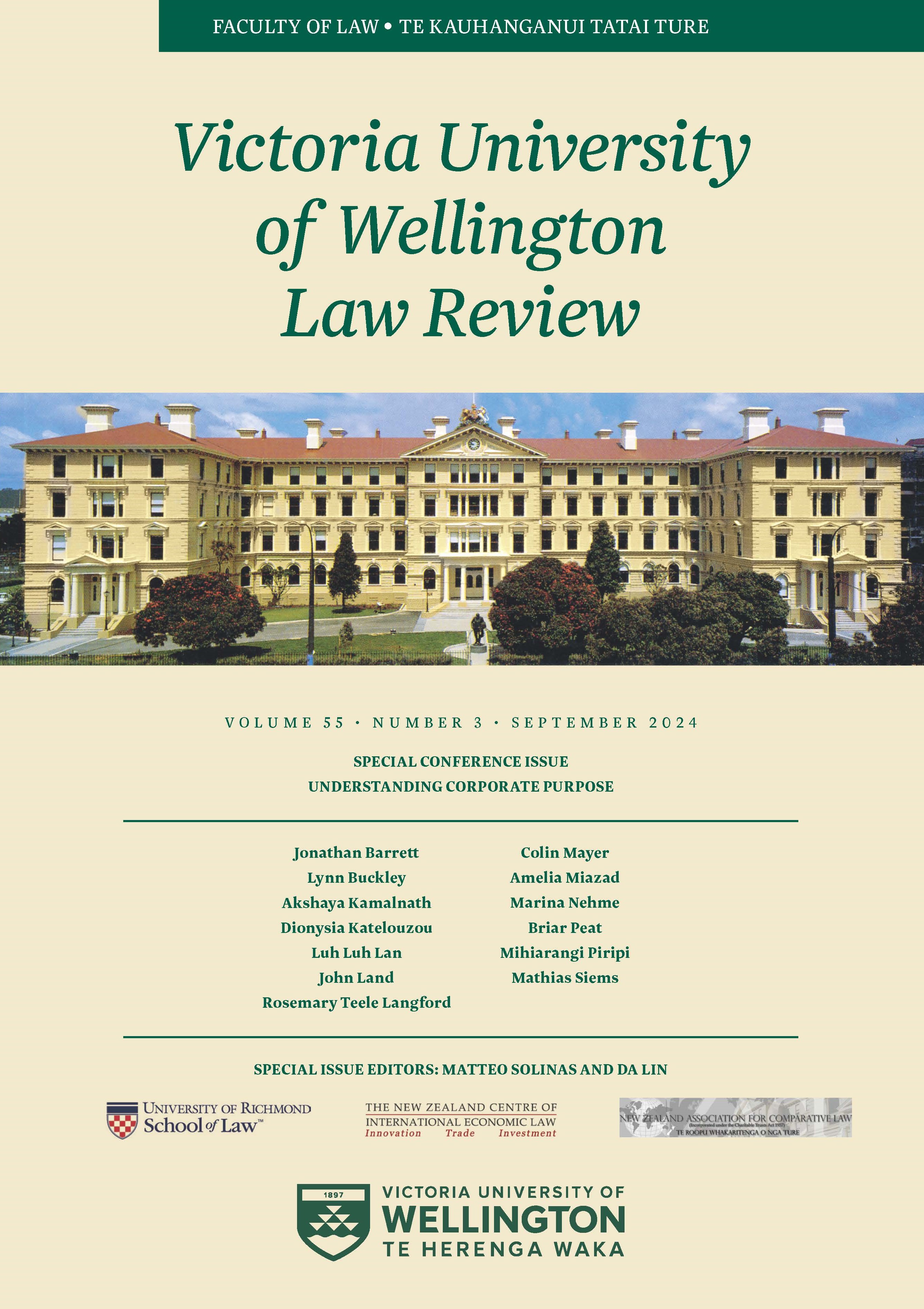The Purpose of Investor Stewardship
DOI:
https://doi.org/10.26686/vuwlr.v55i3.9837Abstract
This article explores the evolving purpose of investor stewardship, reframing it as a pivotal yet underexamined dimension of the broader corporate purpose debate. It traces the shift in institutional investors' roles – from capital allocators and shareholder monitors to "enlightened stewards" – and critiques the traditional conception of stewardship as a mechanism for mitigating agency costs and governance failures.
Through a close analysis of the UK Stewardship Code, the article maps the normative expansion of stewardship from narrow, firm-level engagement to encompass a broader set of responsibilities to "unseen others": end investors, investee entities, society and the environment, alongside immediate client-centric obligations. It argues that the central tension in stewardship lies not between profit and purpose, but between the fiduciary and contractual duties owed to clients and beneficiaries and the wider responsibilities institutional investors may bear toward systemic sustainability.
Advancing the concept of enlightened stewardship, the article develops a framework that balances financial accountability with sustainability goals, drawing conceptual parallels to the UK's enlightened shareholder value regime. It offers a critical assessment of the UK Stewardship Code's normative ambition, regulatory architecture and the structural and interpretive constraints that inhibit its transformative potential. In doing so, it calls for a revised understanding of stewardship – one that explicitly acknowledges its dual mandate, and positions it as a credible soft-law complement to investor regulation and a vehicle for sustainable, long-term value creation.
Downloads
Downloads
Published
How to Cite
Issue
Section
License
Authors retain copyright in their work published in the Victoria University of Wellington Law Review.


